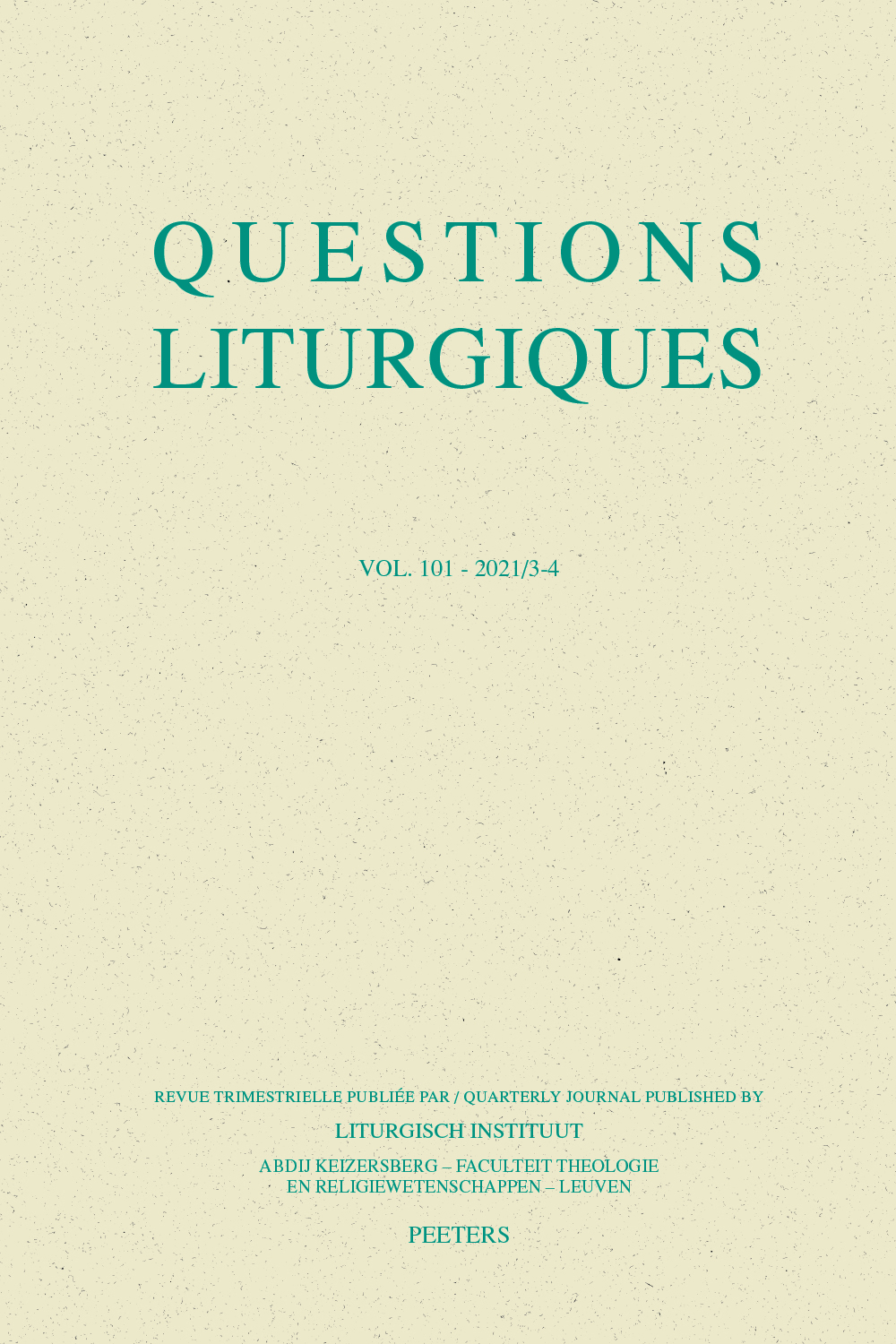 previous article in this issue previous article in this issue | next article in this issue  |

Preview first page |
Document Details : Title: Eucharistic Dimension of Christian Spirituality Author(s): MIGUT, Bogusław Journal: Questions Liturgiques/Studies in Liturgy Volume: 103 Issue: 1-2 Date: 2023 Pages: 75-89 DOI: 10.2143/QL.103.1.3291655 Abstract : The main research problem of this article is the answer to the question about the place of the Eucharist in Christian spirituality. The basic question would be: is there Christian Spirituality without the Eucharist? In order to give a full answer to this question, it was first necessary to define the understanding of Christian spirituality, what is the mystery of the institution of the Eucharist among the other mysteries of His life, and thus what the purpose of Christ’s institution of the Eucharist in relation to the Church is. The next important question is to what extent Christian spirituality can be defined as Eucharistic and in what sense does it have this character. Since the Eucharist shapes Christian life, it is also important to discuss the principles of full participation in it (actuosa participatio), especially in situations of physical impossibility of such participation. The answer to the question has made it possible to state that since the Eucharist 'contains' all the mysteries of Jesus’ life, especially His paschal mystery, a fully Christian spirituality cannot exist without the Eucharist. This is so even when it is impossible to participate physically in the celebration of the Eucharist. John Paul II in Ecclesia de Eucharistia 20 wrote these words on the topic: «Proclaiming the death of the Lord ‘until he comes’ (1 Cor 11:26) entails that all who take part in the Eucharist be committed to changing their lives and making them in a certain way completely ‘Eucharistic’.» This involves efforts to «a transfigured existence and a commitment to transforming the world in accordance with the Gospel» from the eschatological perspective. Le principal problème de recherche de cet article est la réponse à la question de la place de l’Eucharistie dans la spiritualité chrétienne. La question de base serait: y a-t-il une spiritualité chrétienne sans l’Eucharistie? Afin de donner une réponse complète à cette question, il était d’abord nécessaire de définir la compréhension de la spiritualité chrétienne, quel est le mystère de l’institution de l’Eucharistie parmi les autres mystères de sa vie, et donc quel est le but de l’institution de l’Eucharistie par le Christ par rapport à l’Église. La question suivante est de savoir dans quelle mesure la spiritualité chrétienne peut être définie comme eucharistique et dans quel sens elle a ce caractère. Puisque l’Eucharistie façonne la vie chrétienne, il est également important de discuter des principes de la pleine participation à l’Eucharistie (actuosa participatio), en particulier dans les situations d’impossibilité physique d’une telle participation. La réponse à la question a permis d’affirmer que, puisque l’Eucharistie «contient» tous les mystères de la vie de Jésus, en particulier son mystère pascal, une spiritualité pleinement chrétienne ne peut exister sans l’Eucharistie. Il en est ainsi même lorsqu’il est impossible de participer physiquement à la célébration de l’Eucharistie. Jean-Paul II, dans Ecclesia de Eucharistia 20, a écrit ces mots sur le sujet: «Proclamer la mort du Seigneur ‘jusqu’à ce qu’il vienne’ (1 Co 11,26) implique que tous ceux qui participent à l’Eucharistie s’engagent à changer leur vie et à la rendre d’une certaine manière complètement ‘eucharistique’». Cela implique des efforts pour «une existence transfigurée et un engagement à transformer le monde conformément à l’Évangile» dans la perspective eschatologique. |
|


